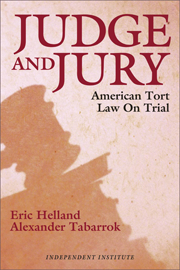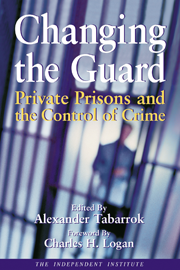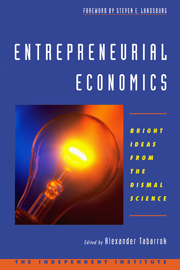I wrote the Independent Institute’s Open Letter on Immigration because I wanted to bring the extensive, nonpartisan research of economists on immigration to the attention of the wider public. The debate on immigration has been, in my view, unnecessarily strident, and I felt that a reasoned summation of some of the important issues could be useful.
Dimitri Vassilaros’ unfortunate response—"Why was there no mention of the ‘fundamental economics’ of illegals who rob, rape and rub out Americans?" ("Economists’ letter intellectually dishonest," column, June 25 and PghTrib.com)—proves my point about stridency.
The open letter makes the following points:
Overall, immigration has been a net gain for American citizens, though a modest one in proportion to the size of our $13 trillion economy
There are plenty of jobs in the United States for both immigrants and citizens
Potential wage declines for low-skilled Americans are a concern but the size of any such declines have been small, with best estimates ranging from zero to, at most, an 8 percent wage decline
The immigrants themselves benefit immensely from immigration—an obvious but often overlooked point as too many people simply count the immigrants out. Indeed, not only do the immigrants benefit directly but also their remittances (private money they send back to their home countries) are highly effective in improving the lot of people in other countries. Immigration is the "world’s best anti-poverty program."
The open letter is short and so does not attempt to deal with all the issues, but an extensive set of references explains the source of economists’ judgments on immigration and provides much more information.
Mr. Vassilaros appears especially incensed that the open letter does not address crime. There is a simple and, one would think, obvious reason for this: Most crime is committed by citizens. Moreover, crime in America is way down and has not been this low since the 1960s. Put simply, reducing immigration is not an efficient way to reduce crime. A much more sensible crime-fighting policy is to hire more police—because employing more police will reduce crime by criminals, whether they are citizens or noncitizens.
Vassilaros accuses me (and by extension the 500-plus economists and five Nobel Prize winners who signed the open letter) of intellectual dishonesty. Readers may judge by the following:
When Vassilaros asked me about the number of illegal immigrants in federal prison I responded that I didn’t have the data on that question at hand. Moreover, I explained that only a minority of prisoners are in federal prisons so it would be more reasonable to look at all prisons.
Thus, within minutes of ending our phone interview, I e-mailed him data on the number of noncitizens in both federal and state prisons. The data, by the way, show that about 6 percent of the people in state or federal prison are noncitizens, which is approximately the same percentage of noncitizens as in the general population (6 percent to 8 percent). Although some immigrants have crime rates higher than the general population and some lower, by and large crime rates are similar especially when we compare similar individuals. You never would know this, of course, from Mr. Vassilaros’ invective.
It’s unfortunate that Vassilaros’ column didn’t contribute to the informed and rational debate that is the hallmark of a well-functioning democracy. Nevertheless, I am grateful for this opportunity to correct Vassilaros’ errors and to reach the readers of the Trib.












